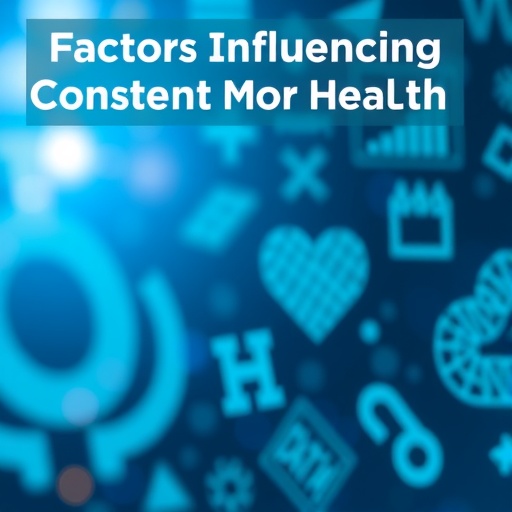In an age driven by technology and rapid digitization, the healthcare industry stands at a crossroads. Electronic Health Information Exchange (HIE) has become essential for streamlining healthcare operations and improving patient care. However, this evolution hinges on one critical aspect: patient consent. A recent observational retrospective study examining the determinants of consent for electronic health information exchange highlights the complex landscape of patient perceptions, societal culture, and privacy concerns in the digital age.
The study, authored by Keuper, Hek, van Tuyl, and their colleagues, takes a deep dive into the intricacies of what influences patient decisions surrounding consent for sharing their health information electronically. As healthcare systems increasingly adopt digital methodologies, understanding these determinants is pivotal for fostering trust between patients and providers while ensuring that the data exchanged is both secure and ethically managed.
The research delves into several factors contributing to individuals’ willingness to provide consent. Firstly, awareness is a significant determinant. The authors emphasize that many patients remain uninformed about HIE and its benefits. This lack of knowledge creates a barrier, where mistrust can flourish due to the unknowns surrounding data usage and sharing. Educational initiatives are thus paramount in augmenting understanding, which in turn could lead to higher consent rates. Without a robust awareness campaign, the very framework of HIE may struggle to achieve its potential.
Moreover, cultural perspectives and social influences cannot be overlooked. The authors of the study point to varying attitudes toward privacy and data sharing that differ markedly across demographic lines. Factors such as age, socio-economic status, and cultural background shape how individuals perceive the risks and benefits of sharing their health information. For instance, older populations might exhibit heightened caution due to an ingrained respect for privacy, while younger individuals might prioritize convenience over confidentiality.
The role of trust also emerges as a critical theme within the findings. The research outlines how trust in healthcare providers influences consent significantly. Patients who have established relationships with their medical professionals are more likely to consent to data sharing. This underscores the importance of fostering trust through transparency, communication, and responsive care. If patients can believe that their information will not only be protected but also utilized to enhance their care, they may be more inclined to participate in HIE systems.
Equally important is the context of security. In an era plagued by data breaches and cyber threats, ensuring robust security measures is paramount. The study highlights how fears of data misuse or unauthorized access can severely impede consent rates. As the authors elucidate, investment in advanced cybersecurity solutions, coupled with regular audits and a commitment to ethical data management practices, is essential to allay the fears of patients. Only when individuals feel confident that their private information is secure can we hope to see greater participation in HIE initiatives.
Furthermore, the authors bring to light the potential impact of regulatory frameworks on consent. Policies governing data sharing and patient rights can either facilitate or hinder electronic information exchange. For instance, stringent regulations might create layers of complexity for healthcare providers to navigate, inadvertently disincentivizing them from implementing HIE systems. Conversely, clear and supportive legislation can serve as a beacon for healthcare organizations to follow, enabling them to encourage patient participation.
The research additionally examines the implications of personal experiences with healthcare systems on consent. Patients with prior negative interactions—whether through data mishandling or inadequate communication—may exhibit reluctance towards granting consent for HIE. This suggests a pressing need for healthcare institutions to not only rectify past mistakes but also promote a patient-centered approach that prioritizes experiences and feedback.
Moreover, the authors touch on the potential benefits of offering incentives for consent. These might range from improved health monitoring to enhanced personalized care. Such incentives can motivate individuals, especially those skeptical of data sharing, to reconsider their stance. However, this must be approached delicately, ensuring that the incentives align with ethical standards and do not coerce patients into unintended consent.
The study also emphasizes the role of technology in driving consent. Digital tools that allow patients to easily understand and manage their data sharing preferences can empower individuals. User-friendly interfaces that highlight the benefits of electronic health information exchange may effectively bridge the knowledge gap identified in the research. As technology continues to evolve, leveraging these advancements is crucial for fostering an ecosystem where consent is viewed positively.
In conclusion, the observational retrospective study brings to the forefront the multifaceted determinants of consent for electronic health information exchange. By understanding the complex interplay between awareness, trust, cultural attitudes, security, regulation, personal experiences, and technology, stakeholders can effectively shape strategies to encourage patient engagement in HIE. As the digital transformation of healthcare accelerates, ensuring that patients feel safe, informed, and valued in this process is paramount.
Navigating these challenges and improving consent rates is not just about technological advancement but about building respectful, transparent, and ethical relationships with patients. Only through such an approach can we ensure the successful integration of electronic health information exchanges into mainstream healthcare practices, ultimately leading to better patient outcomes and more efficient care delivery systems.
Subject of Research: Determinants of consent for electronic health information exchange
Article Title: Correction: Determinants of consent for electronic health information exchange: an observational retrospective study
Article References:
<
p class=”c-bibliographic-information__citation”>Keuper, J., Hek, K., van Tuyl, L.H.D. <




